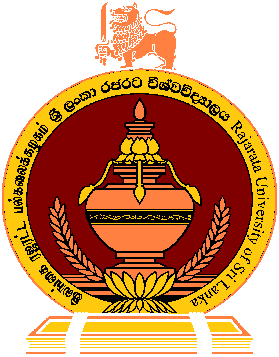The primary purpose of FAS Faculty Quality Assurance Cell (FQAC) is to maintain a culture that continually improves the quality of the staff and students in the faculty in line with the Quality Assurance Council (QAC) of the UGC and Center for Quality Assurance (CQA) of the Rajarata University of Sri Lanka.
The FAS FQAC is headed by the Dean of the Faculty and consists of a Coordinator, and members of the following committees which were appointed at the 173rd Faculty Board meeting held on the 4th of April 2017 and amended on the 179th Faculty Board meeting held in the 23rd of January 2018;
- Evaluation of Quality of Academic Program Committee
- Examination Matters Committee
- Curriculum Development Committee
- Student Progression Committee
- Timetabling and Distribution of Academic Workload Committee
- Student and Staff Welfare Committee
- Environment, Landscaping and Building Committee
- Publicity Committee
- Institutional and International Relations Committee
- Coordinating with Service Departments Committee
Each of these committees consists of academic member/ members, non-academic member/ members and students. The committee gathers regularly to discuss QA matters and is accountable for the faculty board and the CQA of the University.
Responsibilities of FQAC
- Co‐ordination of all Quality Assurance (QA) related activities within the institution
- Liaising with UGC/ QA Council and Rajarata University CQA
- Implementation of QA Reviews/Audits and follow‐up action
- Preparation of institutional self‐evaluation reports
- Provision of advice on QA to all Departments in the faculty
- Monitoring and guidance in Faculty level QA activities in the following aspects; development of human and physical resources; design and development of curriculum/ course; improvement of teaching and learning mechanisms; provision of student support services and facilitating student progression; review of student assessments and awards; promotion of innovative healthy practices
- Organizing awareness programmes on QA for the staff members whenever necessary
- Implementation of Quality and QA aspects in the institution’s corporate plan
- Facilitation of identification and sharing of good practices among academic Departments
- Preparation of QA‐related guidelines and manuals for use within the institution (e.g. policies, by-laws, academic regulations, relevant forms and reports, etc.)
- Ensure the necessary Academic Regulations/ By‐Laws are in place, and if not, make recommendations for remedial action


